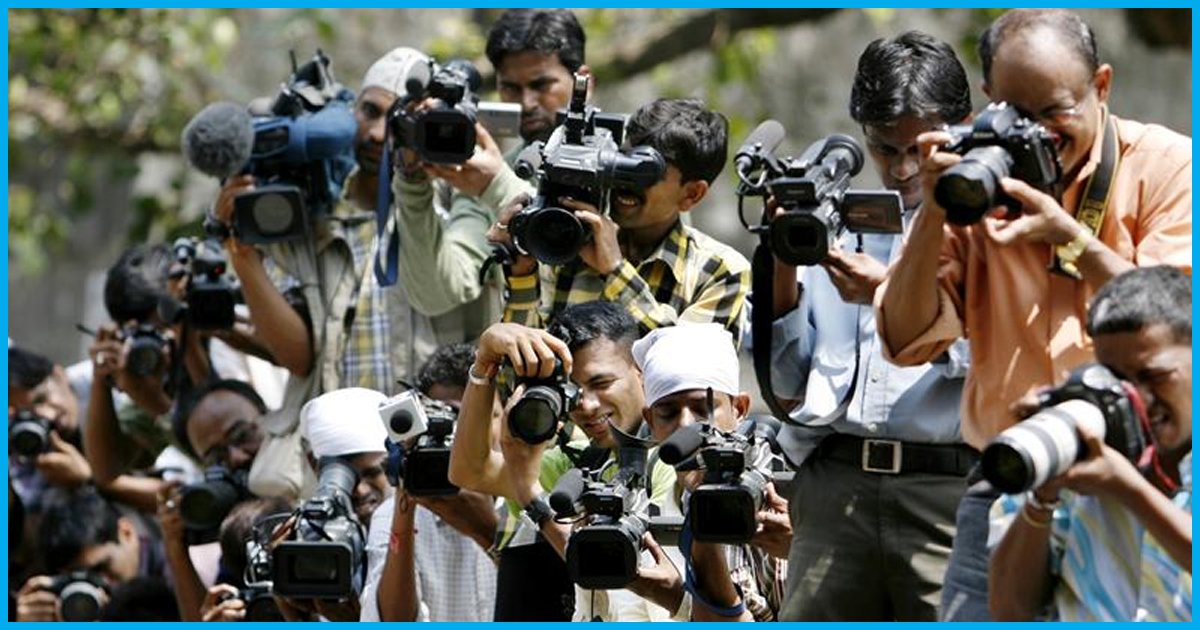
Journalists Don’t Enjoy Special Privilege, Rights Of Press Not More Than Rights Of Common Man: Delhi Court
7 Aug 2017 12:14 PM GMT
Editor : Sudhanva Shetty Shetty
Writer, coffee-addict, likes folk music & long walks in the rain. Firmly believes that there's nothing more important in a democracy than a well-informed electorate.
A Delhi Court has ruled that the rights of journalists is the same as the rights of common citizens and journalists cannot claim special privileges to comment, criticise or investigate the facts of any case.
“…the responsibilities of a journalist are higher. The common man has limited means and reach in which he acts … A journalist on the other hand has a wider reach and power to disseminate information and therefore such power has the potential to cause irreparable damage to a matter under enquiry in a court of law or in a given case has greater propensity to scandalise … the dignity, majesty or reputation of an individual or an institution,” the Court observed.
The judgement comes at a time when there is a widespread debate over the defamation law in India and the legality and impact of media trials.
The Delhi Court’s verdict can be read in its entirety here.
What did the case involve?
Additional District Judge made these observations while resolving a nearly decade-long case between a share broker and a magazine editor who the broker accused of attempting to defame him through scandalous articles.
The court restrained the editor of the magazine, Mercantile Samachar, from publishing any libelous articles against the man. It also directed the magazine editor and the president of the broker’s housing society to pay Rs 30,000 and Rs 20,000 respectively to the man as “symbolic damages”.
The Delhi Court ruled that the defamatory articles published against the stock broker in 2007 were not privileged communication.
“Press does not enjoy any exclusive rights under our Constitution,”
The Court ruled that is a “settled law” that journalists do not enjoy any special privilege and have no greater freedom than others to make any imputations or allegations, sufficient to ruin the reputation of a citizen. Further, the Court stated, journalists are in no better position than any other person.
The verdict said the press does not enjoy any exclusive rights under our Constitution apart from those enjoyed by a citizen as a concomitant of the freedom of speech and rights against unlawful deprivation of life and liberty guaranteed under Articles 19 and 21 of the Constitution.
“… journalists are in no better position than any other person. The press does not enjoy any exclusive rights under our Constitution, apart from those enjoyed by a citizen as a concomitant of the freedom of speech and rights against unlawful deprivation of life and liberty guaranteed under Articles 19 and 21 of the Constitution,” Kapoor said.
The debate over defamation
In the free speech debate, defamation is one of the main topics of discussion. While most of us agree that peddling lies about a person with malicious intentions should be held accountable by the law, we also agree that such laws can misused by powerful people and bodies to silence smaller voices, especially of dissent.
Virtually all countries have defamation laws, though in varying degrees of power. In India, Section 499 and Section 500 of the IPC make defamation a criminal offence under law. Furthermore, a recent judgement by the Supreme Court upheld the law on defamation.
Some argue that defamation should be punishable but favour it being a civil offence rather than a criminal offence. Others go one step further and say defamation laws are routinely misused and so their scope should be minimised as much as possible, if not completely eradicated.
Section 499 of the Indian Penal Code states, “Whoever, by words either spoken or intended to be read, or by signs or by visible representations, makes or publishes any imputation concerning any person intending to harm, or knowing or having reason to believe that such imputation will harm, the reputation of such person, is said, except in the cases hereinafter excepted, to defame that person.”
Section 500 states, “Whoever defames another shall be punished with simple imprisonment for a term which may extend to two years, or with fine, or with both.”
 All section
All section













